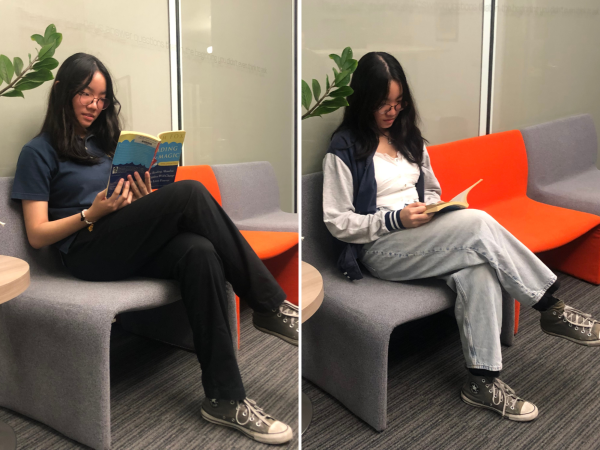The EAL Experience
ISB is filled with expatriates from more than 60 different countries. From the diversity shown at our school, it is clear that we have a very wide range of students from very different parts of the world. We are from many different cultures and speak many different languages.
While some of us have been speaking English for the majority of our lives, there are also many students that are fairly new to the language. For some, moving to Thailand has meant not only a frightening encounter of a new country and a new school, but also a new language, English.
EAL (English as an additional language) students are students with a native language different than English that are currently learning English. Learning a whole new language can be stressful and confusing, especially if you are starting from scratch. An anonymous source explained that “when [they] first moved to Thailand the thought of having to learn a completely new language completely freaked [them] out.”
Fortunately many ISB teachers are very supportive and helpful towards EAL students. A freshman explained that “[they felt] that [their] teachers always offer to help whenever [they need] it.” Other EAL students agreed that most teachers are very good about making sure that they understand everything and know where to go to ask questions and usually do not make a big deal out of them being EAL students.
However, there also those teachers that are completely neutral towards EAL students and treat them the same way the treat all the other students. One student is “not sure if [their] teacher even knows that [they are] EAL” because the teacher “never says anything about it or offers [them] extra help.” In order to quickly and successfully learn English, EAL students require special attention and help.
On the other hand, several students also feel that there are some teachers who take things too far. An anonymous source shared that they had a teacher who would “use very difficult vocabulary that confused most of the class, look down at the EAL students and tell them that he knew they did not understand.” This student stressed that “publically pointing out that someone does not understand something is not at all helpful and often makes the person feel bad.”
This same student brought up the idea that some teachers do not actually know which students are EAL and try to guess. They continued on by saying that it is noticeable that “most EAL students are shy, quiet and talk only to the people who speak their first language.” Because of this, a stereotype for EAL students has been formed in some of the students’ and teachers’ minds.
This same student mentioned that “when some teachers see a quiet Asian student that is not particularly talkative, they automatically assume that they are EAL.” They has had teachers tell them that it is ok if the does not understand everything since they are an EAL student though they have grown up speaking English.
It is important for students and teachers not to make assumptions about which students are EAL and which students are not. It is the teachers’ responsibility to know beforehand which of their students are EAL. Those students should receive support and help, but in a way that does not involve them being embarrassed in front of others simply because they do not understand something.
Head of the high school EAL department, Ms. Karen Reau suggests that “to ensure a positive learning experience for EAL students, teachers need to create an environment where participation, cooperative learning and frequent checks for understanding are common practices.” The correct steps should be taken make this happen as at ISB, multilingualism and multiculturalism are greatly supported.
Antonina (Tosia) Lekawska






